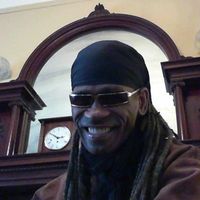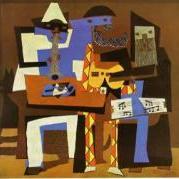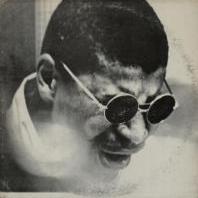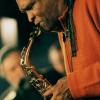Search the Community
Showing results for tags 'Monk'.
-
The Great African-American Classical Art-Form "Rhythm" Changes [Playlist] 47 Tracks 4 Hours 28 min https://open.spotify.com/user/121809214/playlist/7vnVcemiLwjRljOCk9men0 The term “Rhythm changes” refers to a chord progression that derives from George Gershwin’s song “I Got Rhythm” (1930). The composition became quite popular, and within a few years, jazz musicians began to borrow its chord structure for some of their own compositions. However, it should be noted that “Rhythm changes” evolved into a chord progression that was not exactly Gershwin’s. As was often the case with other compositions, jazz musicians streamlined the progression, reducing it to a simpler, more improv-friendly harmonic framework. Compositions employing Rhythm changes became a common staple at jam sessions and are today still an essential part of jazz repertoire. The chord progression is a “must-know” for any aspiring jazz artist. Rhythm changes are almost always played in the key of Bb, variations as with blues changes, musicians often apply certain standard variations to the basic chord progression, either by previous arrangement or on the spur of the moment. This playlist is compiled of sessions using "Rhythm" Changes. Hey! Thanks for stopping by, please like our page and share the content. The Most Influential African-American Cultural Network in the Universe! thejazzaficionado@socialmediastrategiesglobal.net https://www.facebook.com/keepingtheidiomalive/photos/a.855915101129032.1073741841.584459258274619/1057793444274529/?type=3&theater Keeping The Idiom Alive Rashid Booker Harlem USA 125th St
-
Think of Monk by Ethan Iverson in the New Yorker. Article in Ethan’s blog about writing the article, Monk Centennial: Primary and Secondary Documents Comment by Michael Cuscuna in today’s Jazz Gazette, referring to the article in Ethan’s blog: “Thelonious Monk: A Centennial Treasure Chest Any observation that comes out of Ethan Iverson’s brain is worth serious consideration. While I am not always in accord with his encyclopedic commentary on Monk’s recordings and compositions, I find everything he has to say enlightening and insightful. This is a great read and his comment on Billy Higgins is spot on. During a soundcheck for the Bobby Hutcherson-Harold Land Quintet at Royce Hall in 1981, Billy was late. But when he finally sat down at the drums, I could feel the music lift ten feet off the ground.”
-
- monk
- new yorker
-
(and 1 more)
Tagged with:
-
Greetings all. I've been hesitant to publicize the following, and for a true bunch of complicated (and probably over-thought as well as overwrought) reasons. But having reminded myself recently of the generosity of the community here, and of the fact that I've now been able to call myself your neighbor, at least in a virtual sense, for over 15 years (!), I finally feel comfortable with this news with you. On November 1, Jaded Ibis Press will be publishing my debut novel, Crepuscule W/ Nellie. As you might imagine from its title, the novel does in fact have much to do with Thelonious Monk. I.e., the novel's narrative's circulate around him and his cabaret card-less years in the 50s, but, in more importantly, the novel is only about Monk inasmuch as he was a presence in the life of two fascinating women: his wife Nellie, and his patron / confidante the Baroness Pannonica de Koenigswarter. You can learn more about the novel, read some rather embarrassingly approbative blurbs for it, and find links to excerpts from the book at my personal website here: http://www.slowstudies.net/jmilazzo/crepuscule-w-nellie/. Crepuscule W/ Nellie is not historical fiction in the conventional sense of the term. However, it is novel that knows it is work of fiction and never pretends to be anything other than that. Much in the book is imagined (the origins of its composition predating Robin D.G. Kelley's scholarship); perhaps it can be described as a kind of improvisation on the speculations, rumors and myths that have hovered around these three figures. It is therefore a book that, because it is rather concerned with notions of truth and authenticity (among other themes) is often loose in its accuracy. I.e., if you don't want to read something that ignores, fuzzies up and / or flat contradicts known facts about Monk's life, this may not be a book that rewards your attentions. Now that I've issued those caveat emptors... my publisher has provided me with a PDF of the advance reader's copy (ARC) of the novel, and I would be happy to make that file available to any Organissimo member interested in poring over one. If so, please just PM me. I'm less concerned with sales than with having readers, and I can't think of readership I respect more than this board. Thanks all for putting up with this pitch. Best, JM
-
(All sold — thanks!)
-
Our Spanish friends ? (depends on your point of view I guess) have released these live titles: 1) THE COMPLETE 1966 GENEVA CONCERT + 2 BONUS (CD)- Thelonius Monk http://www.jazzmessengers.co/en/68154/thelonious-monk/the-complete-1966-geneva-concert-2-bonus 2) AT THE CHICAGO JAZZ FESTIVAL 1987 (CD)- DEXTER GORDON AND BOBBY HUTCHERSON http://www.jazzmessengers.co/en/68163/dexter-gordon/at-the-chicago- jazz-festival-1987 3) THE COMPLETE STORYVILLE BROADCASTS (CD)- DAVE BRUBECK AND PAUL DESMOND http://www.jazzmessengers.co/en/68151/dave-brubeck/the-complete- storyville-broadcasts Has anyone heard or purchased these ? How are the performances/recording quality? I need good- great sound, otherwise it bothers me on my system. Thanks for the input, Jeff
- 14 replies
-
- dexter gordon
- Monk
-
(and 2 more)
Tagged with:
-
Join Dave as he analyzes an amazing recent solo performance of the great Chick Corea! Topics include modal interchange, modal anthems, ten drummers, cycled harmonies, and much more. Includes a new performance by Dave and class notes available for download. You vill LUVV this) Free for thee. http://youtu.be/OmNI8HuPhDM Blessings y'all and keep swingin from NYC!
-
I don't know how many people are into Charlie Hunter's music, which is often quite funky in a soul jazz type of way, featuring Charlie's unique sound on his hybrid 8 string guitar/bass, which sounds more like an organ when he plays it through a Leslie (I assume) In any event,this 1996 CD by TJ Kirk, a cooperative effort rather than a "Charlie Hunter project" holds up really well, and I would recommend it to anyone who digs organ trios and funk. Here's a portion of the AMG review> The idea of three guitarists and a drummer who play the music of Thelonious Monk, James Brown andRahsaan Roland Kirk may seem odd or limiting, but the musicianship of the players in question has produced an album that explicitly explores the connections between the compositions of these three legendary musicians while raising the stakes in the debate about what is and isn't "jazz." Scott Amendola's drumming is precisely funky throughout, and Charlie Hunter's 8-string guitar supplies both the punchy basslines and the heavily chorused chords that Will Bernard and Will Schott build upon, resulting in a tightly rendered "The Payback," a stirring version of the eternal "Ruby, My Dear" and the multiple tempos and timbres of "Brake's Sake."
- 8 replies
-
- James Brown
- Charlie Hunter
-
(and 3 more)
Tagged with:
_forumlogo.png.a607ef20a6e0c299ab2aa6443aa1f32e.png)




